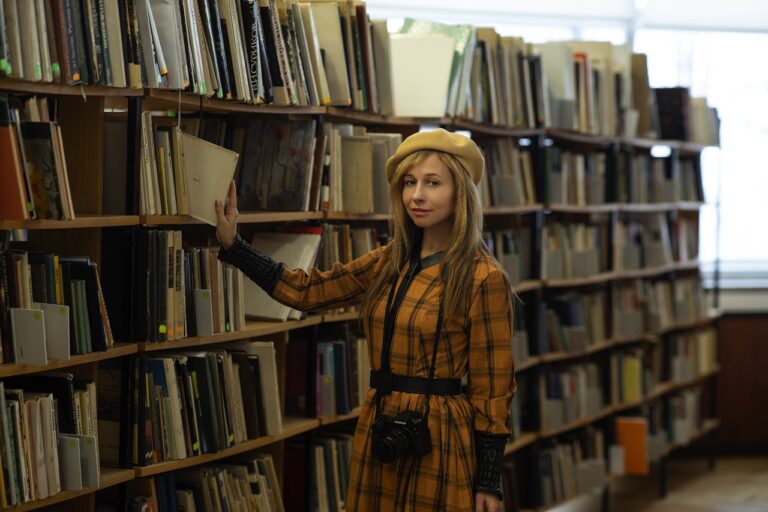Promoting Global Competence through EdTech-Enabled International Theater Collaborations
diamond exchange 9, sky99exch, reddybook:Promoting Global Competence through EdTech-Enabled International Theater Collaborations
In today’s interconnected world, promoting global competence among students is essential to prepare them for success in a diverse and rapidly changing global society. One powerful way to cultivate global competence is through international theater collaborations that leverage the use of educational technology (EdTech). By utilizing EdTech tools, students can work together with peers from different cultures, languages, and backgrounds to create and perform collaborative theater productions. This not only enhances their creativity, communication skills, and cultural awareness but also fosters a deep understanding of global issues and perspectives.
The benefits of international theater collaborations are vast, as they provide students with opportunities to engage in cross-cultural dialogue, learn about different artistic traditions, and develop empathy for others. Through these collaborations, students are encouraged to think critically about complex global issues, such as social justice, environmental sustainability, and human rights. They are also challenged to communicate effectively with peers who may have different perspectives and values, thus strengthening their ability to collaborate and problem-solve in diverse teams.
Here are some key ways in which EdTech can facilitate international theater collaborations and promote global competence among students:
1. Virtual Workshops: EdTech tools such as video conferencing, online collaboration platforms, and virtual reality can enable students from different countries to participate in virtual workshops and rehearsals. This allows them to share ideas, collaborate on scriptwriting and character development, and receive feedback from mentors and peers in real-time.
2. Language Translation Software: Language barriers can often hinder communication and collaboration in international theater projects. EdTech tools such as language translation software can help students overcome these barriers by translating scripts, dialogues, and feedback into multiple languages, making it easier for students to understand and engage with each other.
3. Cultural Exchange Platforms: EdTech platforms that facilitate cultural exchange, such as online forums, social media, and digital storytelling tools, can help students learn about each other’s cultures, traditions, and artistic practices. This exchange of ideas and perspectives can enrich the creative process and deepen students’ understanding of global issues.
4. Digital Storytelling Tools: EdTech tools like video editing software, animation programs, and interactive storytelling platforms can enhance the quality and impact of student theater productions. By incorporating digital elements into their performances, students can create immersive and engaging experiences for audiences around the world.
5. Online Collaboration Spaces: EdTech platforms that provide secure, online collaboration spaces for students to share and edit documents, videos, and other creative materials are essential for international theater projects. These platforms enable students to work together in real-time, regardless of their physical location, and to co-create performances that reflect a diverse range of voices and perspectives.
6. Global Audience Engagement: EdTech tools can also help students connect with global audiences through live streaming, social media, and virtual reality experiences. By sharing their performances with a wider audience, students can receive feedback, spark conversations, and raise awareness about important global issues.
In conclusion, EdTech-enabled international theater collaborations have the potential to promote global competence among students by fostering creativity, communication, collaboration, and cultural awareness. By leveraging the power of technology to connect students across borders, these collaborations not only enhance students’ artistic skills but also cultivate their ability to think critically, empathize with others, and engage with global challenges. As educators, parents, and policymakers, we must support and champion these innovative approaches to education to prepare students for success in the 21st century.
FAQs
Q: How can educators get started with EdTech-enabled international theater collaborations?
A: Educators can start by researching EdTech tools and platforms that support virtual collaboration, language translation, cultural exchange, and digital storytelling. They can also reach out to schools, theater groups, and cultural organizations in other countries to initiate partnerships and collaborations. Training and professional development in cross-cultural communication and technology integration are also valuable for educators embarking on this journey.
Q: How can students benefit from participating in international theater collaborations?
A: Students can benefit from participating in international theater collaborations by developing a range of skills, including creativity, communication, critical thinking, and collaboration. They can also gain a deeper understanding of global issues, learn about different cultures, and expand their artistic horizons. Participating in these collaborations can also boost students’ confidence, empathy, and intercultural competence, all of which are valuable skills for success in today’s interconnected world.
Q: How can parents support their children’s involvement in international theater collaborations?
A: Parents can support their children’s involvement in international theater collaborations by encouraging them to explore new artistic and cultural experiences, to engage with peers from different backgrounds, and to take risks and experiment with their creativity. Parents can also help their children access technology resources, communicate with partners in other countries, and navigate any challenges that may arise during the collaboration process. By supporting their children’s participation in these collaborations, parents can help them develop valuable skills and broaden their worldview.






